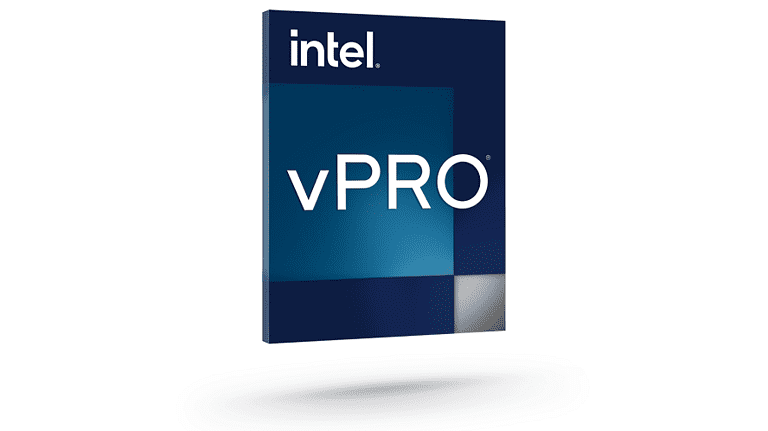Intel has rolled out a new version of vPro powered by 13th Gen Core. The platform should achieve better security, power efficiency and performance.
Intel vPro targets PCs and laptops with the latest 13th generation Intel Core processors on board. The update expands security considerably. For example, the new Intel vPro chipsets are said to reduce the attack surface 70 percent, compared to four-year-old vPro chipsets.
Also, the new chipsets are more tightly integrated with operating systems and security solutions than in the older versions.
Security collaboration with others
In partnership with Microsoft, Intel now offers more virtualization-based security capabilities. Integration with CrowdStrike gives Intel Threat Detection technology more capabilities against ransomware and software supply chain attacks. For example, the new vPro platform is highly effective at detecting ransomware and now also identifies many types of zero day attacks not previously uncovered.
In addition, both the Enterprise and Essentials versions of the hardware platform support Intel HardwareShield. Together with antivirus software, this protects the entire computing stack from threats or block memory attacks. It also protects activities performed in the operating system, such as system management mode, boot code and firmware.
Hybrid architecture
The latest Intel vPro chipsets use a hybrid architecture with two types of cores; one for delivering performance (P) and a second for greater energy efficiency (E). The Thread Director orchestrates tasks to these two different types of cores based on the runtime of the OS.
The Dynamic Tuning functionality handles clock speeds for both types of cores based on activity conditions and system parameters. Also, this technology can turn off unused cores for power savings.
Ultimately, this should lead to 65 percent higher performance for Windows applications and 14 percent lower costs than older PCs equipped with vPro technology.
Edge applications
For edge applications, Intel’s new vPro chipsets have built-in support for Wi-Fi 6E and remote management capabilities such as updating the BIOS even when a device is off. Other added support is for Thunderbolt 4.
The new Intel vPro’s are further supported by the Intel Stable IT Platform Program. With this, they are validated for both Windows 11 and Windows 10. However, it does mean they will receive patches and updates at a slower rate than consumers with the monthly updates.
Also read: Intel introduces new dedicated Xeon processors for workstations
